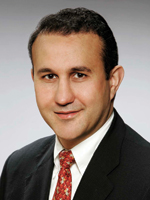Professionalism and Judges
The Bencher—July/August 2015
By Francis G.X. Pileggi, Esquire

 For the last 15 years or so that I have written this column on legal ethics, I have focused primarily on the standards that lawyers are expected to follow as well as court decisions where those standards have been applied. By comparison, much less legal literature exists regarding the standards that judges should follow and many fewer court opinions exist where standards that judges are expected to follow have been enforced. Is less written about the unprofessional behavior of judges because it does not exist or because it is proportionately less of a problem?
For the last 15 years or so that I have written this column on legal ethics, I have focused primarily on the standards that lawyers are expected to follow as well as court decisions where those standards have been applied. By comparison, much less legal literature exists regarding the standards that judges should follow and many fewer court opinions exist where standards that judges are expected to follow have been enforced. Is less written about the unprofessional behavior of judges because it does not exist or because it is proportionately less of a problem?
The standard of conduct that we should expect from judges is rarely the subject of articles for various reasons including the obvious: reluctance to offend the jurists before whom one might make his or her living. In addition, the various codes of judicial conduct are typically enforced by other judges.
The theme of this issue of The Bencher is professionalism. The focus of this article will be a happy and positive one. This column will describe a few highlights of the induction ceremony for one of the newest members of the federal judiciary, Judge Mark A. Kearney. Based on his background and character as demonstrated through many years of practice, I predict that he will set the standard of judicial behavior by which others will be measured.
By describing the background and character of a new federal judge, my intent is to suggest that the past comportment of a person who is elevated to the bench is a helpful indicator of the future behavior of that judge while serving on the bench. When we hear stories about, or read opinions from, judges who are unnecessarily harsh in their rejection of an argument or unnecessarily belittling of lawyers who appear before them, one might inquire: did the judge treat others that way before ascending to the bench? How those jurists treated others who angered them or disagreed with them before donning the black robe is a helpful indicator of the performance of those same persons after they join of the ranks of the judiciary.
At the induction ceremony of Kearney as the newest judge of the U.S. District Court for the Eastern District of Pennsylvania, much of the program included testimonials by colleagues, friends and other judges about the type of person Kearney is, and has been. Many of the speakers at the ceremony indicated that during his many years of practice, they could not remember Kearney yelling in anger or deriding colleagues or others that he interacted with either on the job or on a personal level. A common theme in their description of the new judicial officer was that he is someone who is always jovial and quick to laugh. That assessment is consistent with my experience when I first met him during the year he served as a law clerk for the Delaware Court of Chancery. It would be hard to imagine this new judge treating anyone with less than complete respect, whether in his written opinions or on the bench. He joked with his new colleagues during his induction, that his experience in the Court of Chancery taught him how handling expedited cases can be part of routine daily procedures for a trial judge.
After his service as a judicial law clerk in Delaware, he joined the firm of Elliott, Greenleaf & Siedzikowski where he became a managing shareholder, with offices in Delaware and Pennsylvania. As a member of the Delaware and Pennsylvania Bars he accumulated many honors and much professional recognition in connection with his national trial practice that focused on commercial, class, derivative and financial litigation. He is a prolific writer. For example, he was a lead author of two volumes of the Villanova Law Review on Delaware fiduciary standards, and has written over twenty scholarly articles on commercial and corporate litigation.
Kearney serves as the current president of the Pennsylvania Bar Institute and was the president of the Montgomery Bar Association. He has represented dozens of abused children in criminal and dependency trials through the Montgomery Child Advocacy Project, and was a long-time director of Legal Aid of Southeastern Pennsylvania. He was also an appointed member of the Lawyers' Advisory Committee for the U.S. Court of Appeals for the Third Circuit.
In his remarks, and in the presentations by others about him, an often repeated refrain was that Kearney truly cares about people, and believes that all deserve to be treated with dignity regardless of their station in life. His wife and two children are his highest priorities, but other relatives and a large group of friends and colleagues are counted among his extended family. His Catholic faith and Irish heritage are key parts to understanding this newest jurist. For example, for many years he attended an annual Catholic weekend retreat with his father, and the Gaelic word for family was featured prominently throughout his acceptance speech.
In his remarks after he took the oath of office, Kearney described how his parents instilled in him the values of hard work, humility, concern for others, perseverance, and integrity. He worked his way through law school at a grocery store, which undoubtedly gave him an appreciation for the challenges of the blue collar work force. One of the other common themes in the description by others of Kearney was his friendly demeanor, and his ability to bring people together to "get a job done-and quickly."
These highlights of the background and character of Kearney promise that his judicial tenure will be marked by professionalism and high standards of judicial conduct that the best judges exemplify. Consistent with his reputation and the description of his character by those who have worked with him, one would not expect Kearney to belittle or be condescending to the attorneys appearing before him.
Articles about professionalism more often than not emphasize how lawyers should behave. Professionalism also must be expected of the judiciary, and it remains equally important for judges to treat lawyers and others who appear before them with the same respect, courtesy, and dignity that all lawyers should exhibit, both orally and in writing.
Kearney's life has exhibited the hallmarks of professionalism to which lawyers and judges alike should aspire. Based on that track record, I have every confidence that Judge Kearney's tenure on the federal bench will be a paradigm for the highest standards of judicial conduct.
Francis G.X. Pileggi, Esquire is the member-in-charge of the Wilmington, Delaware, office of Eckert Seamans Cherin & Mellott, LLC. He summarizes key corporate and commercial decisions of Delaware's Supreme Court and Court of Chancery at www.delawarelitigation.com.
© 2015 Francis G.X. Pileggi, Esq. This article was originally published in the July/August 2015 issue of The Bencher, a bi-monthly publication of the American Inns of Court. This article, in full or in part, may not be copied, reprinted, distributed, or stored electronically in any form without the express written consent of the American Inns of Court.